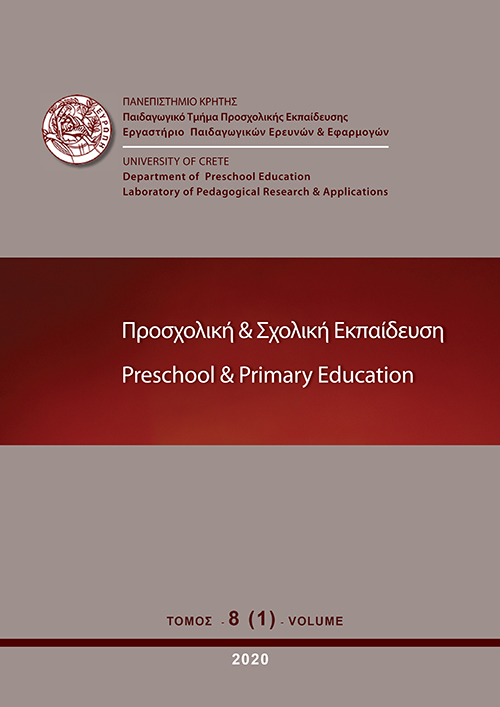Policy on refugee education: Textual discourse and educational structures

Abstract
This paper is an attempt to illustrate the education policy having been developed since the time period prior to the economic crisis until today. The reason for choosing this time period is that it reflects major events relevant to the continuation of the local society. In this respect, reference is made to the migrants’ presence in Greece prior to the economic crisis migrants’ conditions throughout the economic crisis and the refugees’ advent in recent years. At the same time, the corresponding legislative texts and the political discourse developed throughout this period are critically analysed.
The socio-political and economic conditions of this time period have been crucial to generating political discourse, social meaning and, eventually, shaping new identities, especially regarding migrants and refugees. Based on critical discourse analysis, it can be argued that the legislative administrative regulations serve the dominant political system, while on-going conservative attitudes and emerging far right anti-democratic trends operate in a segregating, rather than a unifying, manner for the entire population.
Besides, education seems unable to operate in a similarly unifying pattern, leading to limited opportunity structures, exclusion and marginalisation for specific population groups, namely migrants and refugees. Therefore, given the socio-political and cultural challenges emanating from expanded migrant and refugee communities, the education policy must definitely be revisited. A renewed and updated educational discourse should be developed and put forward towards harmonising and unifying models, embracing all citizens, namely natives, migrants and refugees. This way, humanism and democracy will be perceived in their true dimension, while intercultural education will acquire its substantial dimension within the expanded multicultural societies.
Article Details
- How to Cite
-
Καλεράντε Ε. (2020). Policy on refugee education: Textual discourse and educational structures. Preschool and Primary Education, 8(1), 86–105. https://doi.org/10.12681/ppej.21167
- Issue
- Vol. 8 No. 1 (2020)
- Section
- Articles

This work is licensed under a Creative Commons Attribution-NonCommercial-ShareAlike 4.0 International License.
Authors who publish with this journal agree to the following terms:
- Authors retain copyright and grant the journal right of first publication with the work simultaneously licensed under a Creative Commons Attribution Non-Commercial License that allows others to share the work with an acknowledgement of the work's authorship and initial publication in this journal.
- Authors are able to enter into separate, additional contractual arrangements for the non-exclusive distribution of the journal's published version of the work (e.g. post it to an institutional repository or publish it in a book), with an acknowledgement of its initial publication in this journal.
- Authors are permitted and encouraged to post their work online (preferably in institutional repositories or on their website) prior to and during the submission process, as it can lead to productive exchanges, as well as earlier and greater citation of published work (See The Effect of Open Access).


